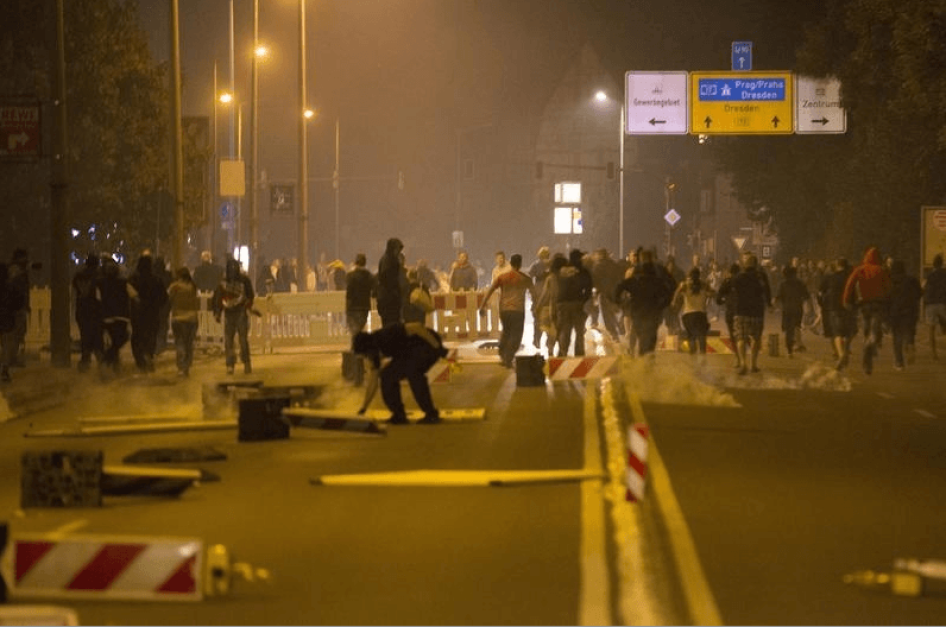The list of attacks against centers for asylum seekers in Germany is alarming. During the first six months of this year alone, the German Interior Ministry registered 173 such offences, the majority of which were arson attacks. And the list is getting longer.
Almost every day, the media reports new xenophobic attacks and hate-motivated demonstrations, most recently from the town of Heidenau in Saxony, where right-wing extremists rampaged in front of a center for asylum seekers for three consecutive nights and attacked police with bottles, stones, and fireworks.
Germany belongs to those countries in Europe that have agreed to receive a lion’s share of asylum seekers. The German interior minister, Thomas de Mazière, predicts that an estimated 800,000 asylum seekers will arrive in Germany this year alone. Instead of the budgeted €1 billion, German municipalities will need around 12 billion to provide refugees decent services and accommodation. No problem, says Finance Minister Wolfgang Schäuble.
It would be great to see other EU countries showing even a fraction of this commitment.
In addition, the German population and the media are demonstrating an unprecedented level of solidarity. People are organizing places to stay for refugees and collecting and distributing all kinds of donations. German Chancellor Angela Merkel and the country’s President Joachim Gauck have ensured broad coverage by visiting centers for asylum seekers and speaking with refugees. Commentators condemn the brutality of the right-wing extremist attackers.
Centers for asylum seekers, however, continue to burn. What, then, is going wrong?
Right-wing extremists and their sympathizers are not a uniquely German phenomenon. They exist in many European countries. However, the German authorities have a tradition of poor eyesight when it comes to right-wing violence. Far too often, the police and judiciary have trivialized xenophobic and homophobic attacks as fights or pub brawls. This is why, in July, a law entered into force that foresees special and severe punishments for crimes committed out of “racist, xenophobic or other inhumane motives”. At first glance, this seems essential; nevertheless, it will not change much in the short-term.
In April 2012, Human Rights Watch wrote to the ministers of justice at the federal and state level, arguing that “this change of legislation will only have an effect if the focus of the struggle against hate crimes is put on the initial and further training of police, prosecutors, and judges.”
At the time, we received much support from police and political circles. A report published by the German Police University drew the same conclusions as Human Rights Watch. The fact that centers for asylum seekers continue to burn in Germany shows that they are inadequately policed, if at all, and that insufficient measures have been taken to combat right-wing extremist violence. This, in turn, shows that the security forces are still not sensitized enough to the reality of right-wing extremist crimes.
Clearly, Germany still has a lot to do and needs to do it quickly.









